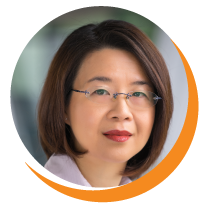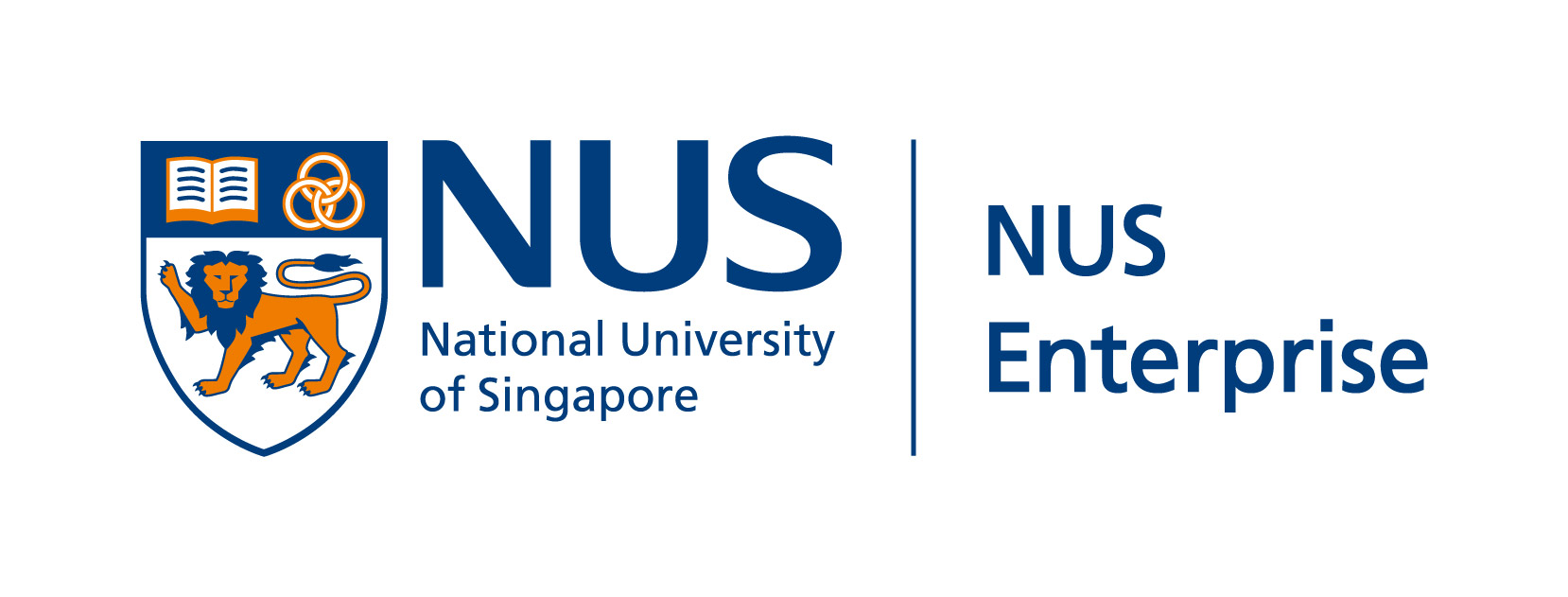This site uses cookies
By clicking accept or continuing to use this site, you agree to our use of cookies. For more details about cookies and how to manage them, please see our Privacy Notice.

Prof Bernard Tan
Prof Bernard Tan is Senior Vice Provost (Undergraduate Education) at NUS. He assists the Provost in setting educational directions and policies, and in assuring educational quality for the University. His achievements include the Public Administration Medal (Silver) in 2012, NUS Outstanding Educator Award in 2004, and NUS Young Researcher Award in 2002. Prof Tan is also Shaw Professor in the Department of Information Systems and Analytics.
Education Reform at NUS
Students today will be working in an Industry 4.0 workplace for much of their careers. Such a workplace is characterised by rapid obsolescence of knowledge, massive
transformation of industries, increased complexity of problems (and solutions needed), and greater turbulence of the environment. To prepare students for such a workplace, it is imperative for universities to re-examine and make bold but necessary
changes to its curriculum and pedagogy. This address provides insights into (and the rationale for) the various pieces of education reforms carried out by NUS (over the past few years) to better prepare students for an Industry 4.0 workplace.

Patrick Pu
For more than 10 years, Patrick has been helping the Engineering and Computer Science community in information literacy, consultations, collection development and outreach. Outside of work, Patrick has many interests including travelling, cycling, swimming, eating and many more. He lives by the motto of “just do it” in his daily life.

Richard Ho
Having been at NUS for almost a decade as an undergraduate, working at a café and being a research assistant, Richard has found himself back at the very same place where he spent countless hours as a student -- as a librarian at NUS Libraries. He currently provides research support to the NUS community on digital scholarship and scholarly communication matters. He also spends too much of his free time on social media, with a recent favourite being the 'she's/he's a 10' trend.
Bridging the Gap Through Library Partnerships to Shape Future-Ready Talent
NUS librarians work with diverse faculties to offer partnerships and educational programmes that augment teaching and foster interdisciplinary exchanges. These programmes encompass the integration of Innovation & Entrepreneurship as well as Scholarly Communication components into the curriculum. It exemplifies NUS Libraries' commitment to nurturing future-ready talent and enabling them to achieve maximum impact through innovative solutions.

Dr Leong Lai Peng
Dr Leong Lai Peng is a pioneering faculty member who teaches a diverse range of courses from year 1 to year 4. She collaborates with the library to provide training sessions, empowering students to maximize their use of library resources.
Enhancing Education: Collaborative Strategies with NUS Librarians for Information Literacy Augmentation
In this engaging presentation, Dr Leong delves into her firsthand experience of collaborating with NUS librarians to elevate the Information and Education segment in her courses, such as FST1101, FST3105 and FST4199. She will discuss the courses involved, the motivations behind this partnership, and the significant value that librarians bring to the curriculum. Attendees will gain insights into the impact on students' academic outcomes, the relevance of libraries and librarians in today's context, and the positive feedback received from students. Moreover, Dr Leong will outline possible future collaborations with the library, offering valuable takeaways for educators and institutions seeking to enhance their education strategies through strategic partnerships.

Dr Chng Hui Ting
Dr Chng is a dynamic and passionate educator with the strength and versatility to marry pharmacy practice and pharmaceutical science, and the arts and sciences. Her research interests are on interdisciplinary education, active and collaborative learning pedagogies, mentorship and pharmacokinetics of drugs used in veterinary medicine.
Business Intelligence for Pharmacy Students – Why and How?
In the new integrated Bachelor of Pharmacy programme, third year students work in teams to innovate and solve unmet healthcare needs and problems in PR4191 SCI-PhI Project.
While students can be as innovative as they want, the solutions should be practical, feasible and viable. Using relevant examples from the pharmaceutical industry, NUS Libraries conducted a Business Intelligence workshop to equip students with the
know-hows on resources they can use to gather insights on trends from the perspectives of industry, consumers, economies and more. Students also learnt to search for and read patents. Pharmacy students can now ground their research with important
and good quality data using the knowledge and skills learnt.

Debashish Pal
Debashish has over 20 years’ experience building deep-tech ventures & taking innovative companies to market across Asia-Pacific, both as an entrepreneur and as a venture partner. He has built and run multiple high performance regional organisations and executed numerous projects in Food & Agri Tech, Medical Devices, Healthcare, IT and Sustainability & Environment.
The Preferred Commercialisation Pathway for NUS Research
GRIP is NUS’ flagship commercialisation programme to help NUS research commercialise and the researchers to achieve their entrepreneurial aspirations. As a structured and
comprehensive programme, it helps entrepreneurs sharpen the value proposition to what the market needs, build a working prototype, seek market validation, put a team in place, raise capital, secure a 100K investment from NUS, launch the spin-off and license the
IP from NUS under friendly terms.

Prof Audrey Yue
Prof Audrey Yue is the Head of the Department of Communications and New Media, and the founding convenor of the Master of Arts in Arts and Cultural Entrepreneurship programme at NUS. She researches in cultural policy, urban communication and Sinophone media cultures. She recently completed a funded project with the National Arts Council on the impact of Covid-19 on the arts, cultural and heritage sector in Singapore.
Creating Impact Through Communication, Innovation and Entrepreneurship
This talk looks at the domain of Arts, Culture and Heritage (ACH) as a site of communication, innovation and entrepreneurship. It begins by situating recent ACH sector transformations to demonstrate how a digital humanities approach has shaped the post-pandemic innovations of arts and cultural entrepreneurship. Using the case study of the newly launched Master of Art in Arts and Cultural Entrepreneurship programme (in Department of Communications and New Media), it further shows how advanced arts education and training can support these sector demands and capacities. Central here is the theory-practice-led pedagogy with teaching partners such as the NUS Libraries and NUS Museum to enhance experiential learning and embed industry relevance.

Dr Elliot Law
Dr Elliot Law is a Senior Lecturer and Programme Coordinator of the Innovation & Design Programme (iDP), a multidisciplinary programme that aims to train graduates with an entrepreneurial mindset who understand innovation and are able to apply their discipline knowledge and skills to solve real-world problems or design new products, services, and experiences. He is also presently serving as the Assistant Dean for Undergraduate Programmes and Deputy Director of the Engineering Design & Innovation Centre at the College of Design and Engineering.


Prof Virginia Cha
Prof Virginia Cha is a leading educator of Innovation & Entrepreneurship with multiple appointments at Singapore’s leading tertiary education institutions: Adjunct Professor at NUS Business School; Adjunct appointment at SMART (Singapore MIT Alliance for Research and Technology). Her research work in entrepreneurial logic has been published as a chapter in The Entrepreneurial Behaviour. Unveiling the cognitive and emotional aspect of entrepreneurship, published by Emerald (2020). Together with her MIT colleagues, she has recently published Adaptive Innovation, by World Scientific (2022). In her multi-faceted four decades-long industry and academic career which spanned multiple countries, Virginia co-founded or was the sole-founder and CEO of multiple venture-funded, hi-tech companies in Singapore and China, with listings on NASDAQ and HKSE. She co-authored Asia’s Entrepreneurs: Dilemmas, Risks and Opportunities, published by Taylor and Francis (2009), which captured Singapore’s technology entrepreneurial history from 1995-2005. Additionally, Virginia is a member of the Future Council of World Economic Forum. Virginia is also an active researcher, mentor, and angel investor in Singapore’s entrepreneur ecosystem with 16 start-up companies in her angel investment portfolio with operations in Singapore, Vietnam, Indonesia, USA, Finland, and the UK. Virginia earned her Bachelor of Science in Information Computer Science, University of Hawaii and her PhD from National University of Singapore.
Challenges and Opportunities in Deep Technology Commercialisation
Prof Virginia Cha will share on the state-of-the-art practices in commercialising therapeutic technologies – including emergent market research techniques such as generative
AI to determine opportunities, and techniques for validating the value proposition. A methodology for communicating technology innovations will be shared, to facilitate the communication of the value created.

Prof Sow Chorng Haur
Prof Sow received his B.Sc. degree from NUS. He completed his PhD at The University of Chicago and worked as a Postdoctoral Fellow at Bell Laboratory. He is now a Professor with the Department of Physics. He has published a number of papers in the field of nanoscience.

Ryan Fan Ruiming
Ryan is currently pursuing his PhD at NUS, studying long non-coding RNAs in cardiac development. Although his research at present is in the field of developmental biology, he is interested in a wide range of topics, including immunology and ecology! Outside of research, Ryan spends his time coaching and is active in the environmental group, NUS SAVE.
Science Communication for the Prospective Researcher
The talk encompasses the different aspects of science communication that Ryan has experience with, the learning lessons he has gleaned from his research experience and work with
the Science Journalism Club, as well as examples of effective science communication.

Dr Chitra Venkataramani
Dr. V. Chitra is an Assistant Professor at NUS Department of Sociology, with a joint appointment in the South Asia Studies Programme. She is an anthropologist who is broadly interested in ecology, science and technology studies, and visual studies. She holds a PhD from the Department of Anthropology at Johns Hopkins University and prior to joining NUS, she was a postdoctoral scholar at the Mittal South Asia Institute at Harvard. She has a background in design and she experiments with graphic narratives in her anthropological research.
Comics as a Scholarly Medium
This talk reflects on the possibilities comics open for research and communication. Taking climate change as its focus, the talk demonstrates how comics can intervene to reshape human-nature relationships
in important ways. Comics play with images and text in inventive ways, and Dr. V. Chitra will show how she works with that to narrate complex concepts and arguments.

Prof Ignatius Rasiah
Prof Ignatius Rasiah, is currently the Programme Director at the Institute for Engineering Leadership at the College of Design and Engineering in NUS. This institute provides postgraduate training in Engineering Leadership. He is also the advisor to the Centre for Innovation in Healthcare (CIH) at NUHS. He has previously held a joint appointment as Professor at the Yong Loo Lin School of Medicine. Prior to his current appointment, he was the VP for Breakthrough Research at Medtronic.
Life of an Entrepreneur
There are many who are excited by the idea of becoming an entrepreneur. Entrepreneurship, however, is a special vocation that has it’s many ups and downs as well as trying moments. It requires certain skills and traits that sometimes are not apparent. This talk will delve into some of those skills and traits needed by an entrepreneur. It will then provide some real-life experiences of individuals who have been there and done it. It is hoped that this will give a more realistic view of what entrepreneurship entails and how one should be prepared if one chose such a vocation in life.

Jovan Tan
Jovan is an Instructor at the Engineering Design and Innovation Centre. He teaches the EG2301 Value Creation in Innovation course and supervises undergraduate students in EG3301R Ideas to Proof-of-Concept and EG4301 DCP dissertation. His research interests
are in applied innovation and sustainability, where Restorative Innovation and the LASER framework to design innovations for the circular economy are his most notable works. He has also been regularly featured on respectable media outlets, including
Channel NewsAsia’s Money Mind and CNA938, for his thought leadership and expertise in sustainability and the circular economy.
Jovan is also a Fellow of the World Economic Forum, where he co-leads initiatives and fosters collaborations
and communities relating to innovation in manufacturing, sustainability, and the circular economy. With his vast entrepreneurship and industry experiences, he advises TRIA, chairs the SAFRA Entrepreneurs’ Club, and is appointed to several other
committees, including the NUS Zero Waste Taskforce.
Jovan earned his first degree in Innovation and Entrepreneurship from the University of Adelaide. He holds a Master of Science in Management from NUS and two
Diplomas from Singapore Polytechnic.
Lessons From My Sustainable Entrepreneurship Journey
Jovan has extensive experience in launching and building sustainability-focused companies before joining academia. In his most recent role, he served as the Chief Evangelist of TRIA, a global sustainable food packaging company that enables food service brands to achieve zero waste. In his talk, Jovan will share the most significant lessons he learned from his time with TRIA. It promises to be an insightful experience for all attendees.

Kong Qi Herng
Kong is a co-founder of Moonbeam, a startup that aims to use innovation and business to solve food waste. The former NUS Merit Scholar and Chua Thian Poh Scholar engages businesses and institutions to encourage adoption of brewer's spent grains in food products and services.
Brewery-to-Table
What if food by-products are completely consumed? Being homebrewers, that was the question Moonbeam had when they searched for ways to eat the nutritious spent grains that would otherwise be incinerated. Today, Moonbeam aims to connect industrially-produced spent grains to human consumption, starting with Singapore.
In the process, they learnt the difficulties of integrating spent grains in food that go beyond technical ones like their poor texture and high moisture content. Join Kong as he goes through Moonbeam's journey and how their multidisciplinary team addresses those challenges of commercialising upcycling spent grains to food.

A/Prof Sarah Cheah
A/Prof Sarah Cheah is Associate Professor with the NUS Business School, with research publications in technology commercialisation and innovation management. She advises public agencies in commercialisation strategy and ecosystem development, as well as private companies on corporate entrepreneurship and venture building. She has also provided executive training and consultancy for corporations and public policymakers in Vietnam, Singapore, Indonesia, China and Thailand.


